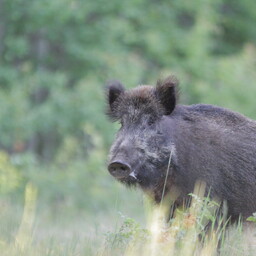All domestic pigs have been culled in African swine fever outbreaks. There are no more active outbreaks. However, the threat of the disease has not disappeared.
The Agriculture and Food Board (PTA) announced the end of the emergency. However, the level of preparedness will not be reduced. All pigs infected with the disease have been culled. Primary disinfection has been carried out.
By mid-October, there are no more active outbreaks in Estonia. However, the disease is spreading faster among wild boars. Before October 1, the disease was diagnosed in 187 wild boars. By October 10, the number exceeded 200.
The disease has been detected most often in Viljandi County and Tartu County. The spread has accelerated in recent months.
The disease has been eradicated from farms. New pigs can be introduced 15 days after disinfection. Farms are gradually being restocked to ensure the virus has been eliminated.
The PTA can declare the threat of the disease over once the virus is no longer present in nature. Currently, the situation is far from this. The disease may return next year.
Currently, the virus has reached the forests of Rapla, Järva, and Jõgeva counties. The likelihood of further spread is high. Livestock keepers, hunters, and the PTA must be prepared for the next season.
Movement restrictions are in effect at 26 pig farms. The restrictions remain in place until the end of October. Since 2015, there have been 41 outbreaks in Estonia. Approximately 110,000 pigs have died or been culled. The outbreaks have caused over 22 million euros in damages.

